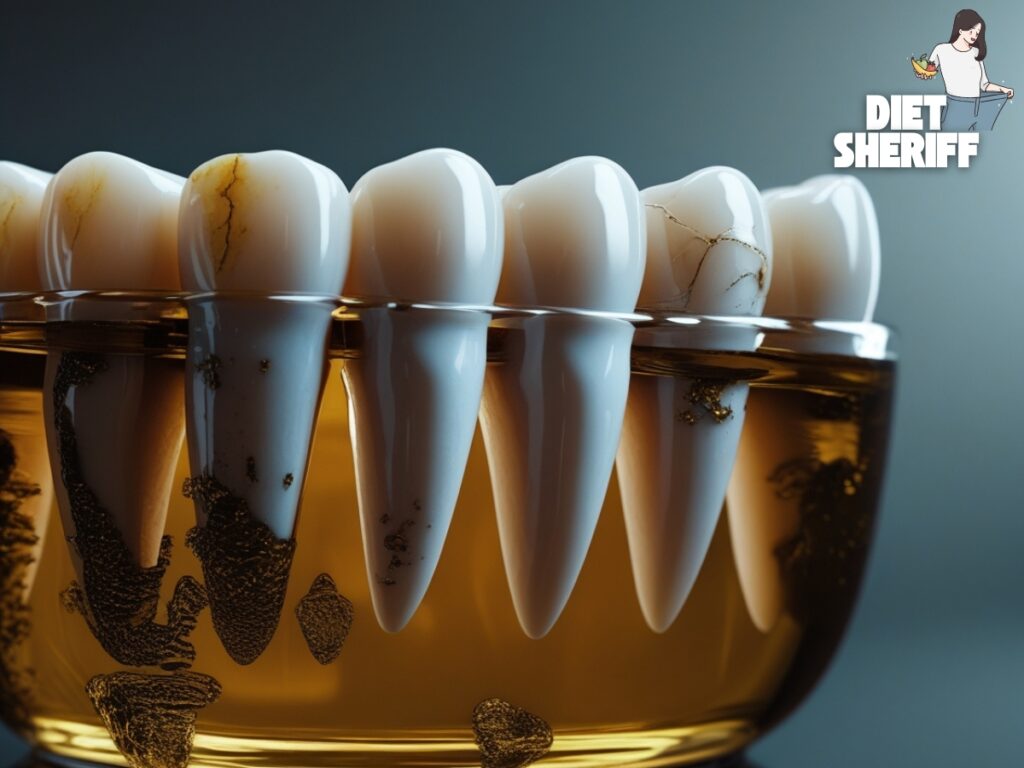Apple cider vinegar (ACV) has become a popular health trend, praised for its potential benefits ranging from weight loss to improved digestion.
However, this raises the question: at what cost? In the pursuit of health trends, are individuals compromising their dental health?
This article aims to investigate that is apple cider vinegar bad for teeth or if such claims are merely myths.
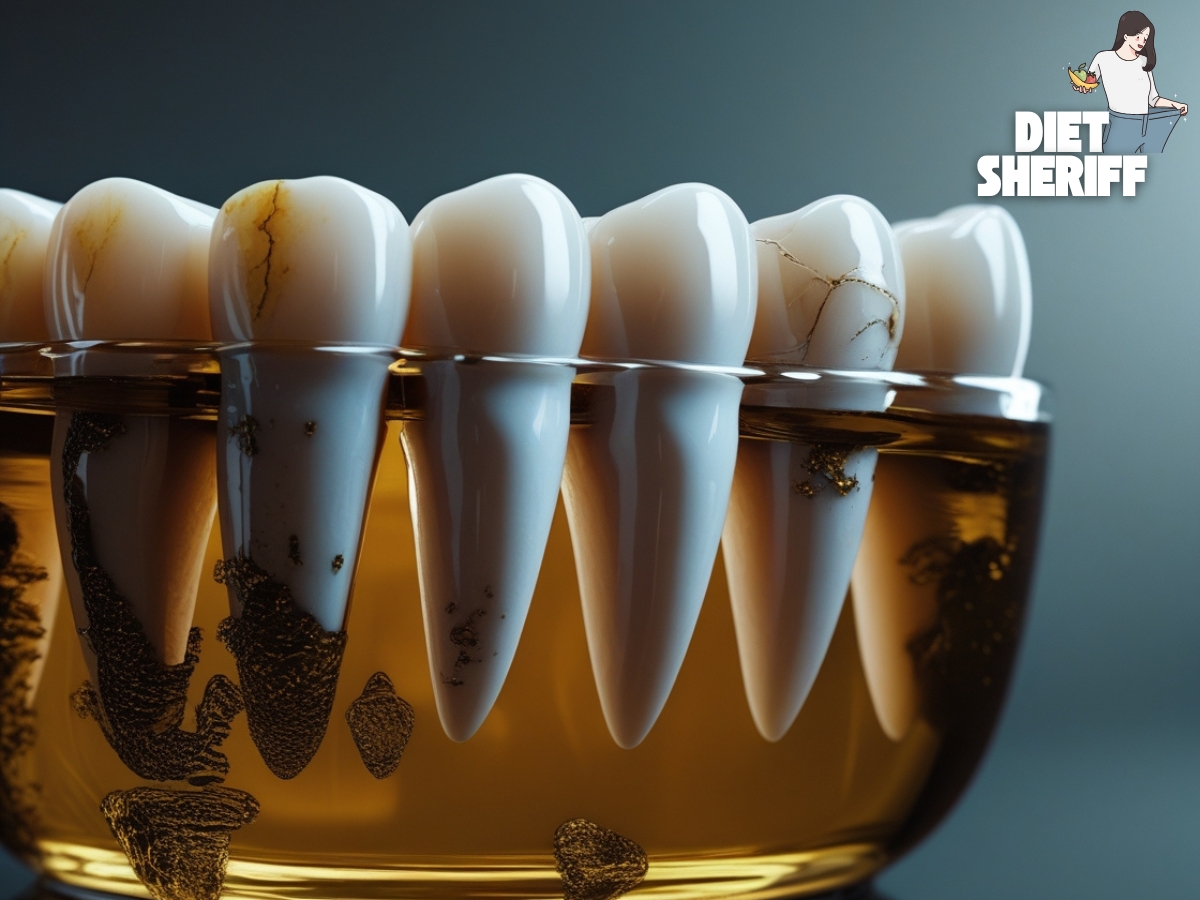
4 Key Takeaways
While ACV offers several health advantages, it also has certain drawbacks. One such concern is its potential to damage tooth enamel.
Expert Guides
Is Apple Cider Vinegar Bad For Teeth?
Positive Impact of ACV on Teeth
On the other hand, ACV does have some potential benefits for dental health. Its acetic acid content can help remove surface stains on teeth, making them appear whiter.
Additionally, ACV has antibacterial properties that can inhibit the growth of harmful bacteria in the mouth, reducing the risk of cavities and gum disease.
A 2022 study demonstrated that ACV could reduce plaque accumulation and gum inflammation in children with cerebral palsy, suggesting it could complement oral care for those with difficulties performing oral hygiene.
Related Articles: How To Make Apple Cider Vinegar Without Sugar? (A stepwise Guide)
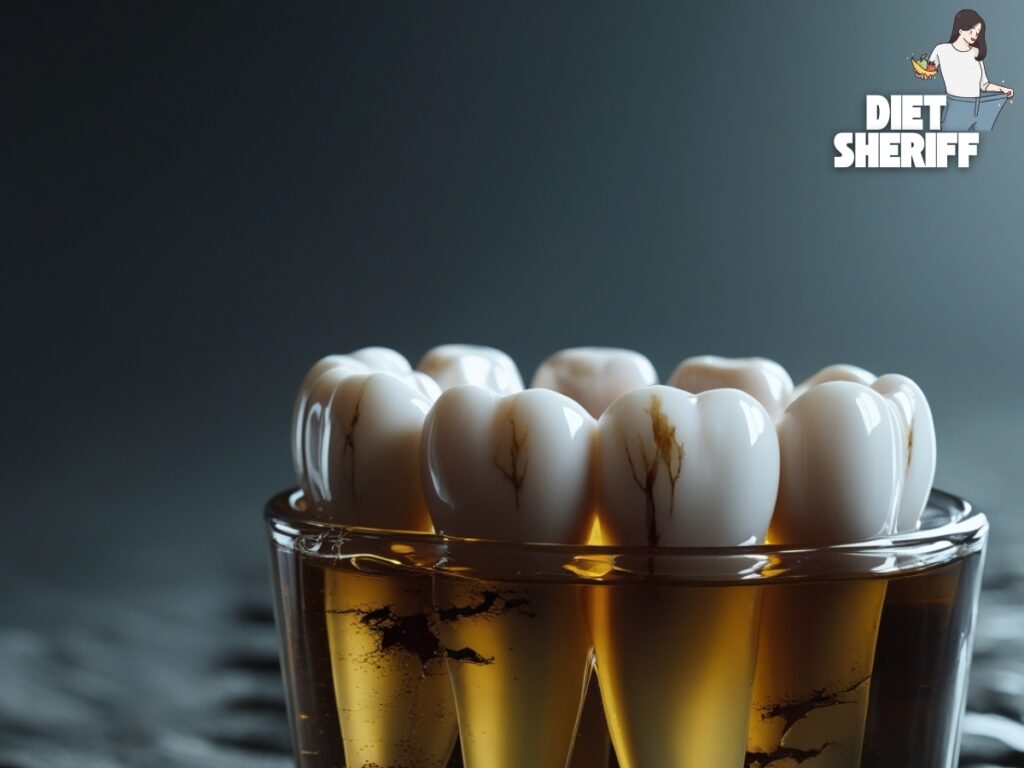
Despite its acidity, ACV can help regulate pH levels in the mouth when used in moderation, contributing to a healthier oral environment and preventing enamel erosion.
Negative Impact of ACV on Teeth
ACV is known for its highly acidic properties, which can significantly impact dental health.
One of the primary risks associated with ACV is tooth enamel erosion. The acidity of ACV can penetrate and break down the enamel, the protective layer of the teeth, leading to sensitivity and an increased risk of cavities.
A study on 105 extracted teeth found that ACV caused the highest degree of erosion among various acidic drinks tested.
In addition to enamel erosion, ACV can cause tooth sensitivity. The damage to the enamel can make teeth more sensitive to hot, cold, or sweet foods and drinks.
Related Articles: Is Apple Cider Vinegar Bad for Teeth?
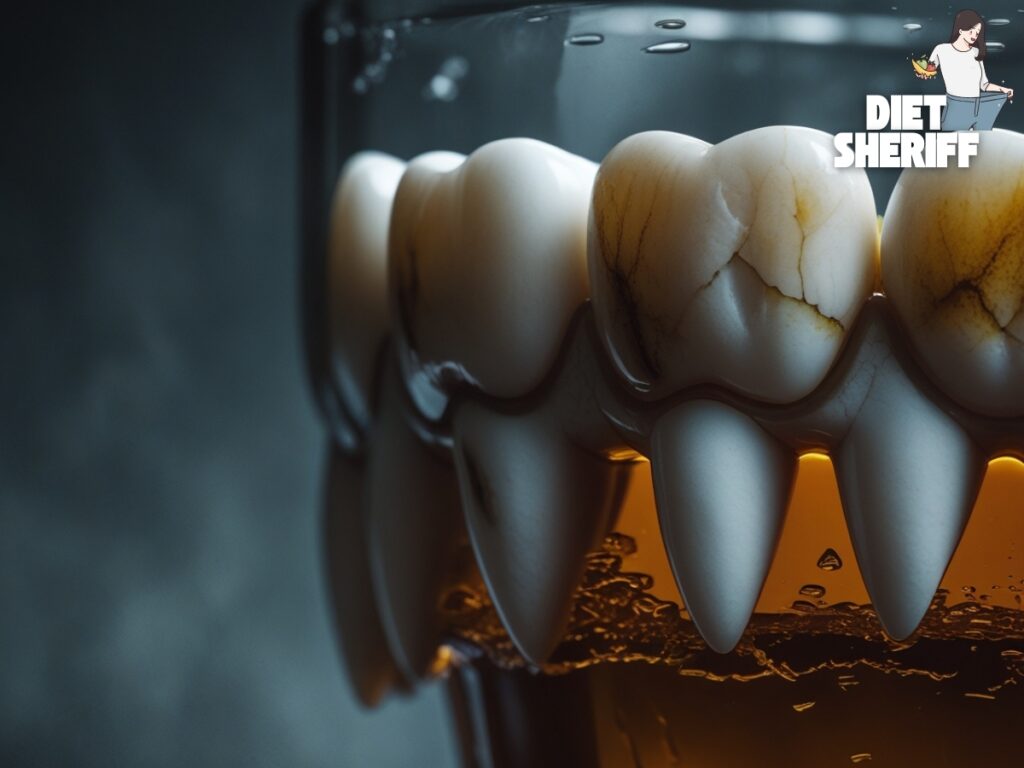
Excessive use of undiluted ACV can also cause discomfort in the mouth, making it difficult to speak and eat. Furthermore, some individuals may experience allergic reactions to ACV, which can exacerbate dental problems.
It is also important to note that ACV may interact negatively with certain medications, so consulting a health professional before use is advisable.
Despite many claims about ACV’s benefits, there is a lack of solid scientific evidence supporting these claims, particularly regarding its effects on dental health.
Related Articles: What Does Apple Cider Vinegar Do For Females?
How to Safely Use Apple Cider Vinegar (ACV) for Dental Health?
While the overall risks of using apple cider vinegar are mild, it can still damage dental and esophageal health when highly concentrated.
The risk of tooth erosion and other issues rises considerably with the regular use of undiluted solutions.
According to UChicago Medicine, the health benefits of ACV are often overstated, and its potential harm to dental health should not be overlooked.
If you want to try ACV for whitening your teeth, there are several steps you can take to minimize the risk of damage. First, always dilute ACV with water.
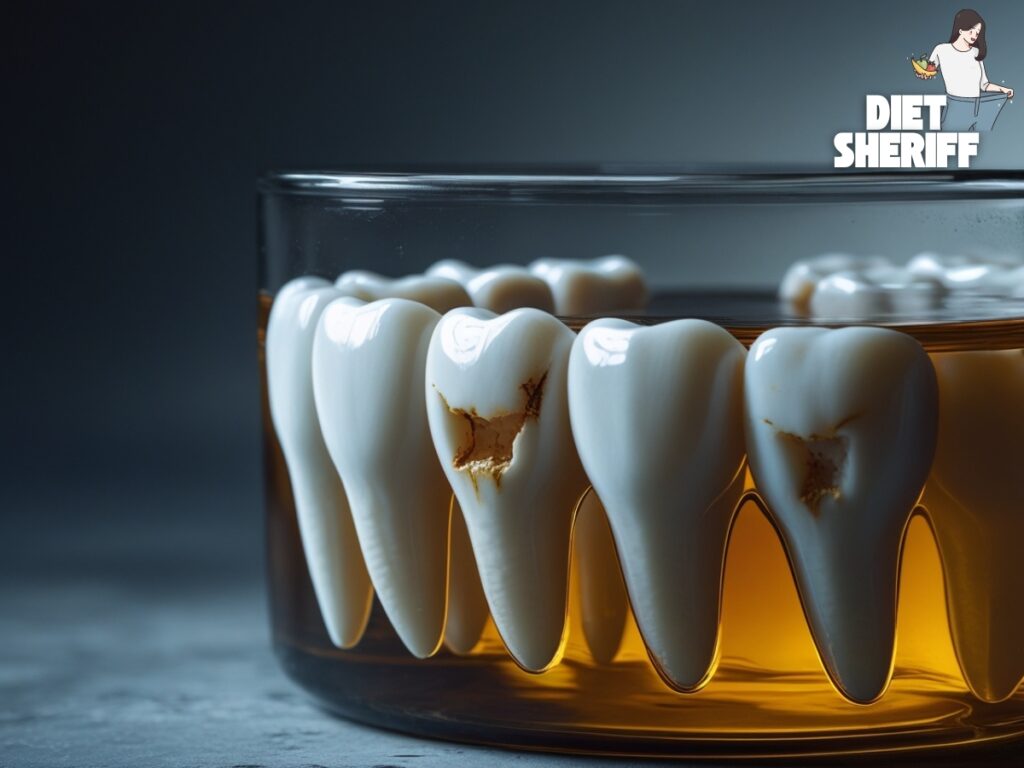
Diluting ACV in water, such as mixing one to two tablespoons with eight ounces of water, can still provide benefits while reducing direct acidic contact. Rinse your mouth after consuming ACV to further protect your teeth diet sheriff.
A common recommendation is to mix one part ACV with two to three parts warm water.
The acidity of ACV can vary between 4% and 8%, so adjusting the dilution accordingly is important. Some people also add baking soda to the solution to neutralize the acid.
Related Articles: What Does Drinking Apple Cider Vinegar Before Bed Do?
Note: When using the diluted solution, swish it in your mouth for about 20 seconds before spitting it out. Repeat this process a couple of times, but avoid prolonged contact with your teeth.
After using ACV, it is crucial to clean your mouth properly. Brush your teeth and rinse your mouth thoroughly with water to remove any residual acid. Drinking ACV through a straw can also help minimize contact with your teeth.
Additionally, avoid swishing the vinegar around in your mouth and refrain from brushing your teeth immediately after consuming ACV, as the acid can soften your enamel. Waiting at least 30 minutes before brushing allows your saliva to neutralize the acid.
Overall, if you decide to incorporate ACV into your dental care routine, follow these safety tips: always dilute ACV with water, limit its use to no more than twice a week, and rinse your mouth thoroughly after use.
Consulting a dentist for personalized advice is also recommended, especially if you have concerns about using ACV on your teeth.
For those using ACV for its health benefits, consider drinking it through a straw to reduce contact with your teeth. If you prefer, taking ACV in pill form can offer health benefits without the risk of acidic contact with your teeth.
Explore Also:
Creativehouseblog
Gigasecurehome
Mycleanseplan
FAQs- Is Apple Cider Vinegar Bad for Teeth?
Can apple cider vinegar erode tooth enamel?
Yes, apple cider vinegar (ACV) is highly acidic and can erode tooth enamel, leading to increased sensitivity and a higher risk of cavities.
What are the potential risks of using apple cider vinegar on teeth?
The risks include enamel erosion, tooth sensitivity, allergic reactions, and potential negative interactions with certain medications.
How often can I use apple cider vinegar on my teeth?
It is recommended to limit the use of ACV on teeth to no more than twice a week to avoid enamel erosion and other dental issues.
What should I do if I experience tooth sensitivity after using apple cider vinegar?
If you experience sensitivity, stop using ACV immediately and consult an oral health professional for advice.
Can I take apple cider vinegar in a way that avoids contact with my teeth?
Yes, you can drink ACV through a straw to minimize contact with your teeth or consider taking it in pill form to avoid acidic contact altogether.
Should I consult a dentist before using apple cider vinegar on my teeth?
Absolutely. Consulting a dentist is crucial to understand the potential risks and benefits and to explore safer alternatives for dental care.
Conclusion
While ACV has potential benefits like whitening teeth, antibacterial effects, and pH balance regulation, it also poses significant risks such as enamel erosion, tooth sensitivity, and allergic reactions.
The lack of solid scientific evidence supporting its benefits highlights the need for caution and professional consultation.
To mitigate risks, dilute ACV with water, rinse thoroughly after use, and consult a dentist if sensitivity occurs.
Always discuss the pros and cons with a dentist before using ACV for tooth whitening and explore safer alternatives.

